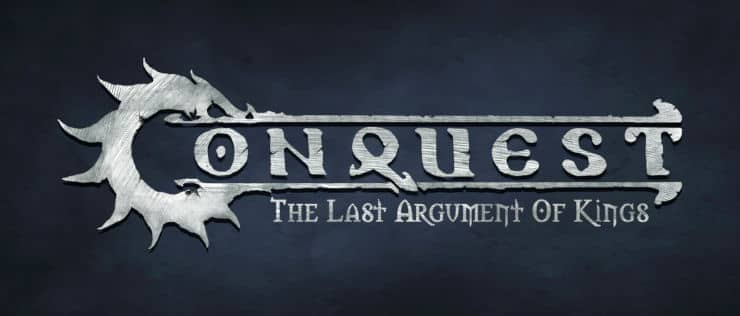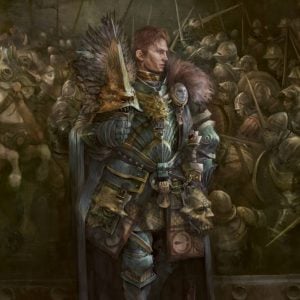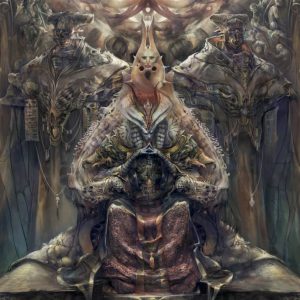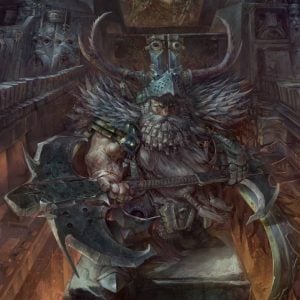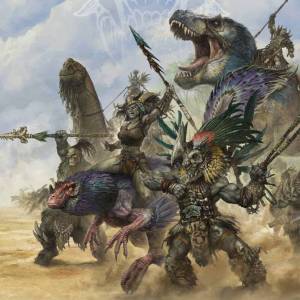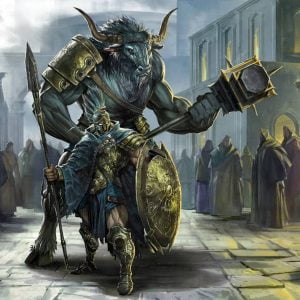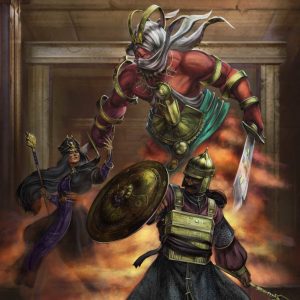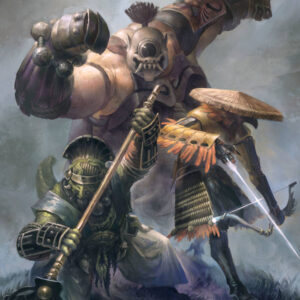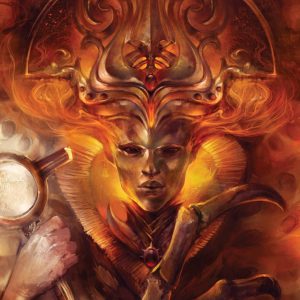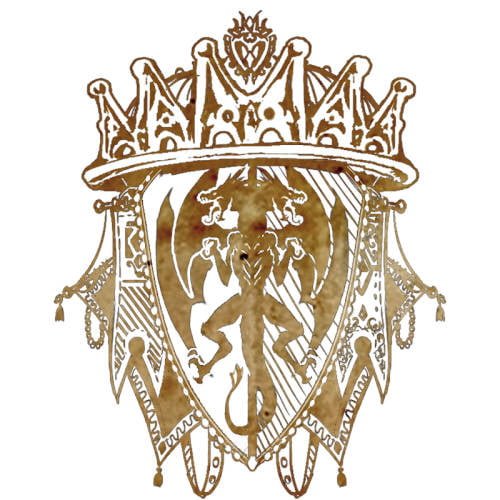
With the death of Otto IV, the last Emperor, the fate of the Empire seemed sealed. The nobility used the Imperial Conclave, called by the Emperor himself, to muzzle the Orders, shackle the Church and dissolve the Legions. Without these bastions of imperial strength, nobody would have the power to challenge their claims. The Empire was doomed, never to threaten the rule of the nobles again… or so they thought. Reality was not so simple and the idea of the Empire proved much more resilient than its enemies counted on. As the situation spiraled out of control, the survival of the Empire came down to the fateful decision of the Steel Legion.
Ordered by the Imperial Conclave to disband, the Steel Legion simply refused. They pitched camp within the Klaean Fields of Argem and announced that the Empire’s capital, and all of its visitors, were under their protection. Reluctant, or unable, to challenge the Legion individually, the noble Houses delayed in their response and calmer heads were able to prevail. The problem did not lie with the Empire, they argued, rather it lay with the role of the Emperor. In the absence of an Emperor what more could the nobility want from the current status quo? The answer, of course, was the Imperial Estate.
Every noble coveted the wealth and influence that came from the title of Emperor but, even more than coveting it, they feared it would fall into the hands of their opponents. Thus, in a uniquely inspired compromise, the seasoned political minds of the nobility that attended the Imperial Conclave struck upon an agreement that pleased no one but satisfied them all: the Imperial Estate would be managed by the Imperial Chamberlain until a new Emperor could be elected, whose integrity, and neutrality, would be guaranteed by the Steel Legion and the Imperial Conclave.
To this day, the Imperial Remnants continue to thrive, funded by the immense wealth of the Imperial Estate. The Chamberlain retains control over the Mint and its Gilded Legion, as well as the Collegia and the Imperial Courts. Even if the Imperial Conclave has stripped their ability to rule on high crimes among nobles, the Imperial Courts continue ruling on low cases, granting commoners a chance at a fair hearing, assuming they can petition their case.
The Chamberlain also retains the services of the Imperial Ranger Corps, to ensure the sanctity of the far-flung properties of the Emperor. Often lending their services out to loyal imperialist houses as they are needed, they also serve as the Chamberlain’s eyes and ears to lands beyond his direct influence. In addition he has chartered the dreaded Steel Legion to defend the material interests of the Estate in view of noble aggression. This has made the Office of the Chamberlain the single biggest employer of the Steel Legion, even if they continue to supplement their income by taking on outside contracts, so long as those promote the interests of the Empire.
Lastly, it is the Chamberlain’s duty to host and preside over the Imperial Conclave every four years, a gathering of the nobility and leaders of the Hundred Kingdoms, to discuss matters of State ranging from trade and border disputes to the election of a new Emperor. Although the Empire has endured over a hundred years without a candidate coming close to election, this is still a momentous event that sees the potentates from throughout the Kingdoms gather for a fortnight of debauchery, power politics and intrigue.
The Office of the Chamberlain quickly evolved from a proscribed managerial position to a powerful force in the daily reality of the Hundred Kingdoms. By exploiting smaller titles and estates once held by the Emperors to secure votes, it exerts significant influence on the Imperial Conclave, where its neutral position acts not only to protect the Imperial Institutions and Estate, but also as a foil against the more extreme elements which seek to undermine the Imperial legacy. When even these subtle methods prove inadequate, it can call upon the military might of the two greatest fighting forces in the Hundred Kingdoms, the two remaining Imperial Legions, as well as the Imperial Ranger Corps and the ingenuity of the Imperial War Colleges.

